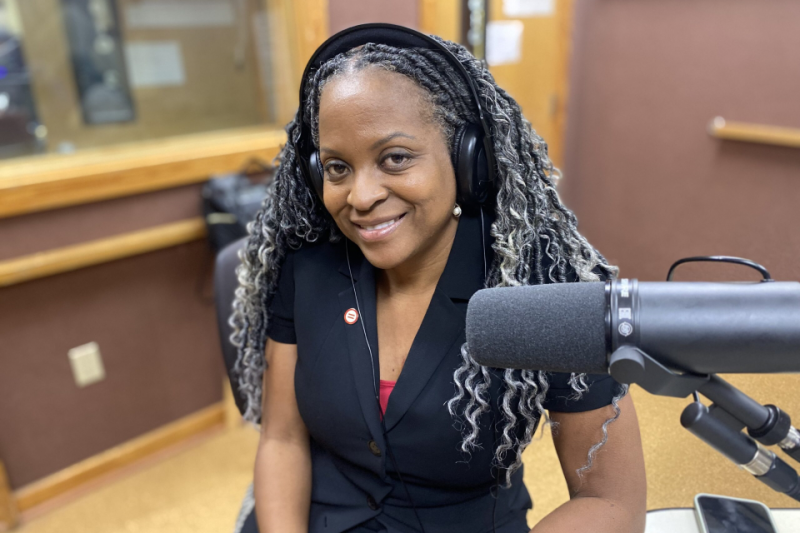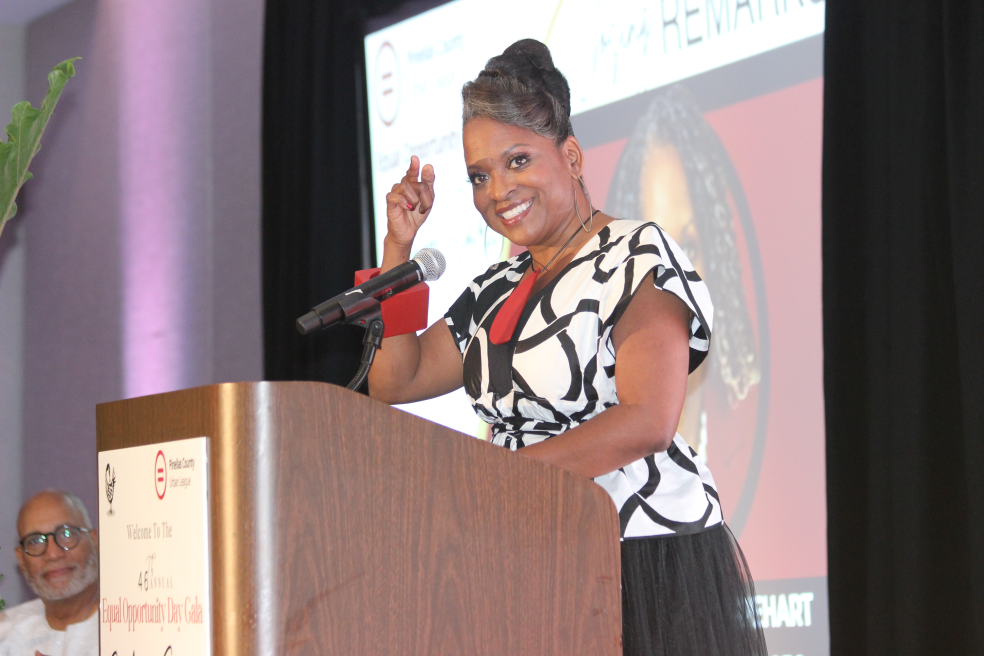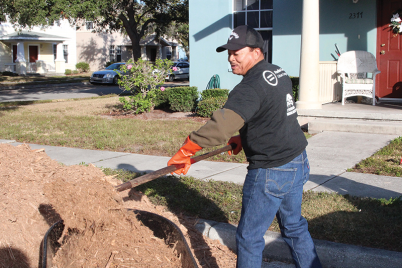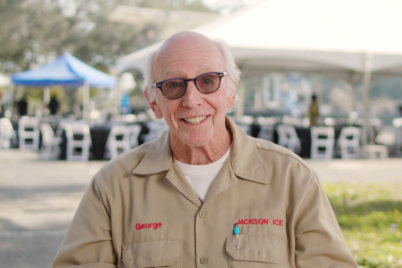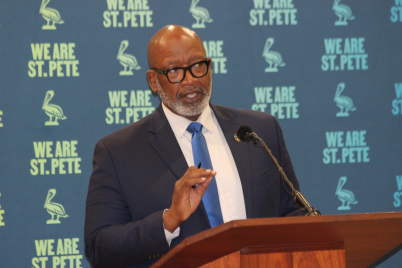Nikki Gaskin-Capehart is reorganizing the Pinellas County Urban League and bringing it into the 21st century. Photo courtesy of WMNF’s WaveMakers
BY FRANK DROUZAS | Staff Writer
ST. PETERSBURG — President and CEO of the Pinellas County Urban League and rising star Nikki Gaskin-Capehart was featured on WMNF’s WaveMakers on Jan. 23. The first woman to head the organization in its 46 years of existence, she discussed a plan that will focus on four pillars: education and community leadership, job training, placement and entrepreneurship, housing and community development and health impact and quality of life.
She began the podcast by honoring the legacy of her predecessor, Rev. Watson Haynes, who led the PCUL for a decade before he died in 2022.
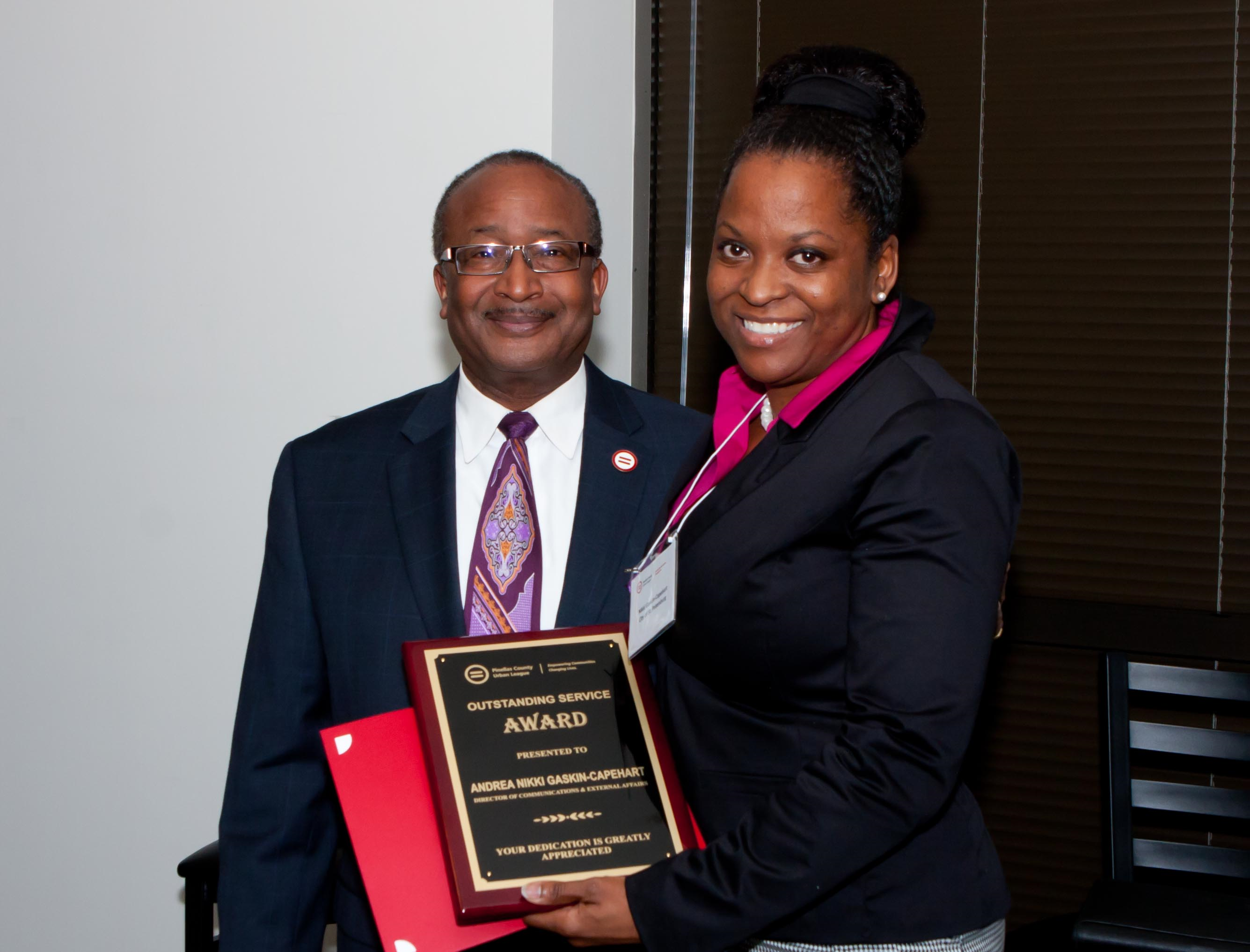
The late Rev. Watson Haynes groomed Nikki Gaskin-Capehart to be the next president of the Pinellas County Urban League.
“He was such a trailblazer in our community,” she said, “having grown up in the historic Gas Plant neighborhood, having mentored so many other young professionals throughout his career — just doing outstanding work for many years.”
Taking the reins last September, Gaskin-Capehart knew it was key to listen to the community to see what direction the PCUL should take in the next six or seven years. She is naturally a collaborator, which has helped her immensely throughout her career. Working under former Mayor Rick Kriseman, she started the Department of Urban Affairs, which was based on collaboration and collective impact modeling.
“It was important for me to hear from the community as we put together Vision 2030 for the Urban League,” she said.
She underscored the National Urban League’s focus on “defending democracy, demanding diversity, and defeating poverty” and noted the current strategic plan is fluid.
“It should be something that’s interactive, and you’re continuing to implement and improve on with partners, with your team long term,” Gaskin-Capehart explained. “A living document is so key.”
There is a documentary in the works, Gaskin-Capehart noted, about the history of the PCUL, which was established in 1978. There was a group of women and men, she said, who saw the need in Pinellas to focus on pre-employment training needs in the community at that time.
A St. Pete native, Gaskin-Capehart has seen many changes in the community. There was a “major need around equity” when the PCUL began, she said, as the city has a history of racism and segregation. She stressed that the need is still there, and PCUL strives to be a long-term advocate for equity, inclusion, diversity and systemic change in the community.
“We are the Pinellas County Urban League,” Gaskin-Capehart underscored, “not the St. Petersburg Urban League, so we make sure that we are covering throughout the county, that’s Clearwater, that’s Tarpon Springs — we might have started in St. Petersburg, but we have expanded to be a part of Pinellas County for a long time now.”
To help plan its strategy for Vision 2030, the PCUL posted an online survey in which more than 700 community members participated.
“Now we’re synthesizing that data, of course, listening to our constituents and our clients and our partners around how we can better expand those pillars and those areas and be accountable, of course, to our funders,” she said.
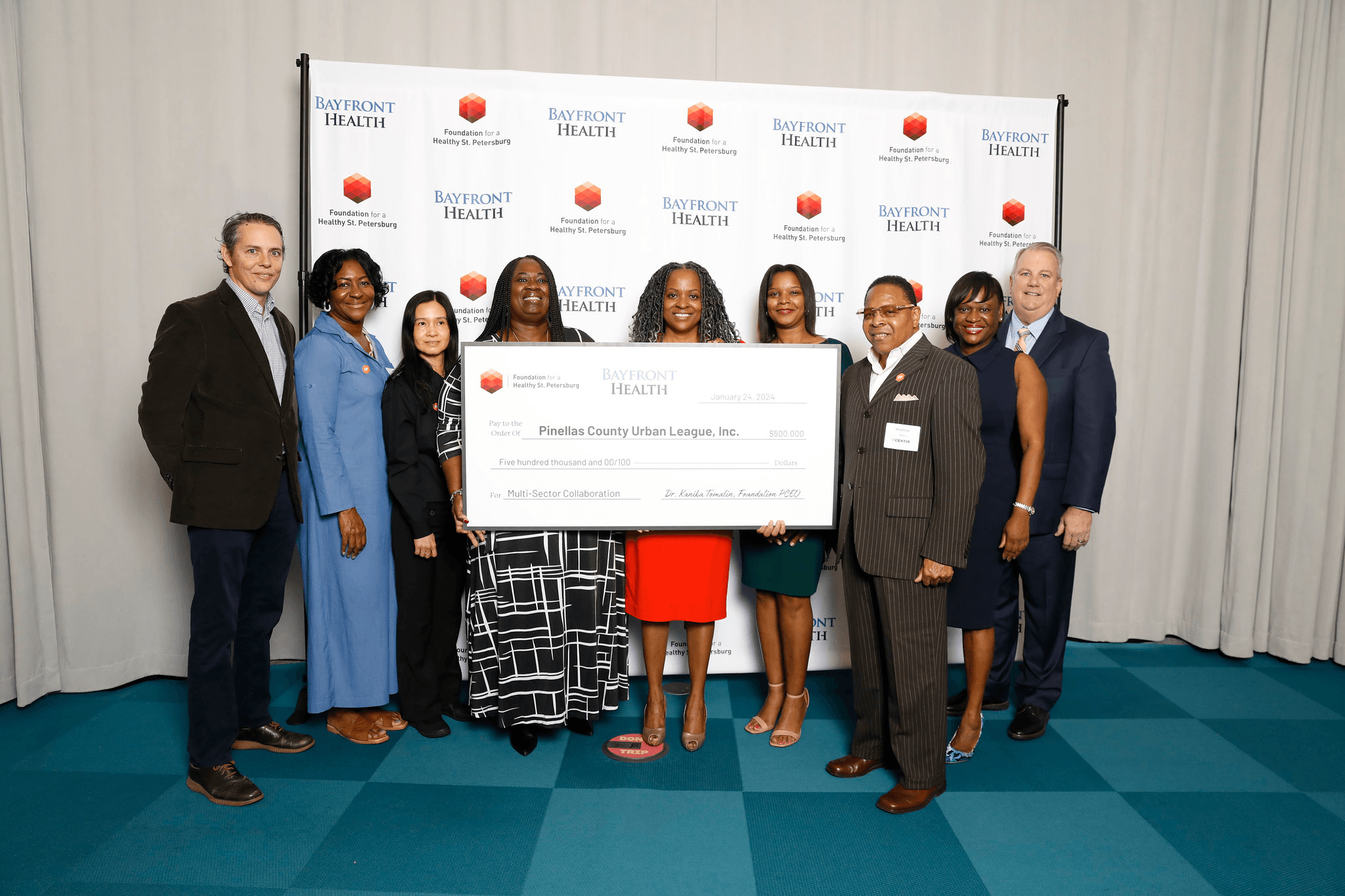
The Pinellas County Urban League received $500,000 from the Foundation for a Healthy St. Petersburg in January for multi-sector collaboration.
Pillar 1: Education and community leadership
In addition to offering summer programs for youths, PCUL is working with a state program for youth crime intervention and prevention, providing educational enhancement. They are also working with the Pinellas County School system and post-secondary education and aim to introduce fellowships that will help train people in “emotional intelligence and all of the different things that will help them become a better community leader,” Gaskin-Capehart said.
Pillar 2: Job training, placement, and entrepreneurship
Gaskin-Capehart revealed that PCUL recently opened an entrepreneurship center, The Power of the Collective, which has a trade mission connected to it “so we can make sure that entrepreneurs are really ready for opportunities.”
The center will ensure entrepreneurs are prepared for opportunities when they arise, such as the Gas Plant redevelopment and other major developments in the works. They will work with all types of businesses, from startups through the accelerator stage.
“We’re really excited to be working with some of the hospitals and hoping to really expand through the Foundation for Healthy St. Petersburg, the anchors collaborative so that we will be able to help with a pipeline necessary for healthcare,” she said, adding that it is crucial to connect with teens when it comes to “soft skills” building, and making sure that they have the certifications that they would need, especially in technology and the STEM fields.
Pillar 3: Housing and community development
PCUL is known for its low-income home energy assistance program that assists eligible households in meeting the cost of home energy and gas bills, and the Weatherization Assistance Program that helps combat high utility bills by improving the energy efficiency of homes, but Gaskin-Capehart is more excited about getting into the affordable housing arena.
By owning the office building on 31st Street North, they may be able to repurpose the space for better use.
“And you’ll see that around the country in lots of communities where many of these older buildings are being converted into space for housing and office and retail. So, we really are excited about seeing how our hub of housing and community development would allow us to be able to self-sustain our organization for many years to come outside of government grants.”
She is also looking to enter the development game like other Urban Leagues nationwide. She mentioned T. Williard Fair, president and CEO of the Urban League of Greater Miami, who does not need to fundraise because they have become a major developer in the area and can employ residents of their developments.
“That’s what I would like to see for our Urban League in Pinellas County,” she shared.
Pillar 4: Health impact and quality of life
The PCUL is continuing the Affordable Care Act Navigation program, where they help citizens obtain affordable health care, and they are looking to help create healthy communities.
“You can build community around healthy eating; you can build community around healthy activities, making sure that people have opportunities for walking clubs, for yoga.”
Weeks into her position, Gaskin-Capehart implemented chair yoga sessions for the PCUL team by bringing in Mindful Movements of Florida each Monday. For the community, there’s WorkOut Wendesdays (WOW), where they work with serval community partners to expand opportunities for healthy activities, cooking demonstrations and financial empowerment, all in an hour-and-a-half session while providing childcare.
Historic Gas Plant
Gaskin-Capehart said that redevelopment of the Gas Plant district is much bigger than merely building a new ballpark for the Tampa Bay Rays. During her time under Kriseman, she said his administration wanted to make sure the RFP (request for proposal) was done in an “equitable manner” to include diversity, equity and inclusion “at its core.”
And although Mayor Ken Welch came in with a new RFP, the diversity, equity and inclusion demand was even stronger.
“We are now at a point where we can see the fruition of that with this second administration,” she noted.
Affordable home ownership is essential for any redevelopment plan in that area, she stressed, given the displacement many of its original homeowners experienced decades ago. Project developers — the Rays-Hines group — must be held accountable for the promises it made, she said, as the community has experienced broken promises time and time again.
Gaskin-Capehart has been very vocal about homeownership as part of the Gas Plant redevelopment. She feels it’s important to have affordable rental units and affordable housing when it comes to ownership. She also wants to see former residents have a chance to move back to the land they once lived on.
“I would love to see our seniors like Mrs. Gwendolyn Reese, who’s been such a griot for our community, telling the story and having lived it, but for her and other seniors to possibly be able to move back to that site in something like senior housing legacy style like what has happened at Jordan Park.”
She said leaders must step up and help shape what could be a long-term sustained generational impact on the site, adding that she is in a constant ongoing conversation with the mayor and Rays-Hines.
Gaskin-Capehart grew up around the Deuces, and when she was a youngster, she helped her grandmother run a sort of bodega out of the house in that neighborhood. Her grandmother was the neighborhood’s “flip lady,” as she provided residents with refreshing sundries.
“For me, early on, it showed me the ability to not be afraid of my entrepreneurial spirit but to lean into it,” she said. “People still call me the flip lady’s granddaughter! She was one of those women who made me realize I could do anything in my power because she was literally afraid of nothing!”
From being a part of the INROADS Internship Program for minority youth to going into the banking field to working in government and politics, among many other accomplishments, Gaskin-Capehart said she feels genuinely fulfilled in her new position as PCUL head.
“I’ve never had a role that I’ve felt like encompassed every single thing that I wanted to do from a passion standpoint,” she said. “I have a motto that’s ‘passion, power and purpose’ and I feel fulfilled every day in this role.”

